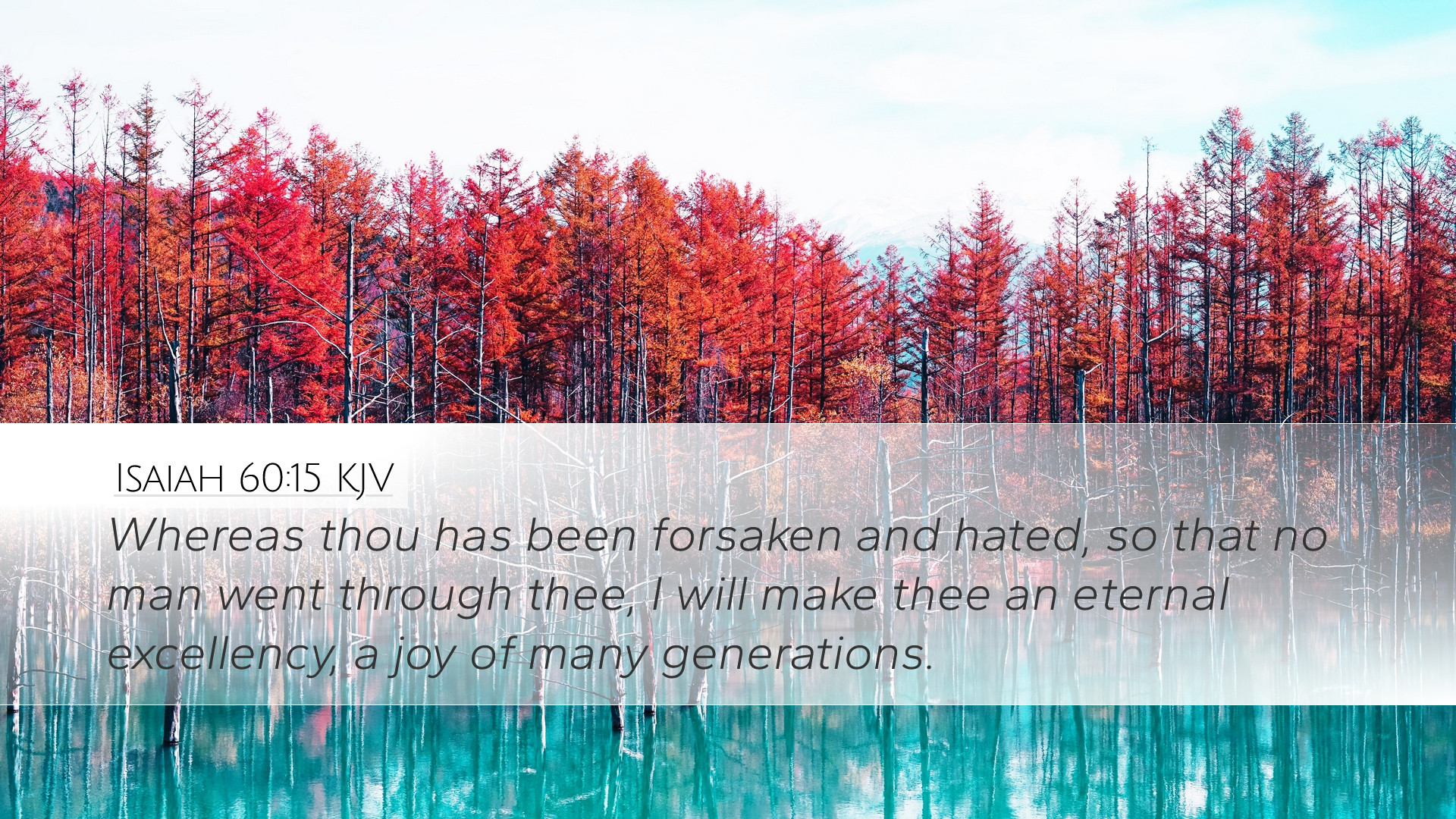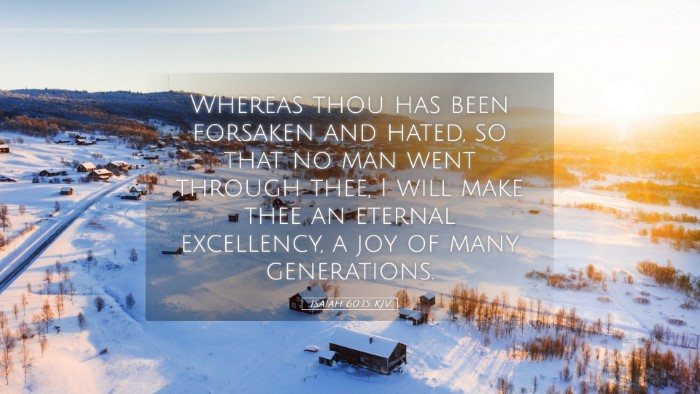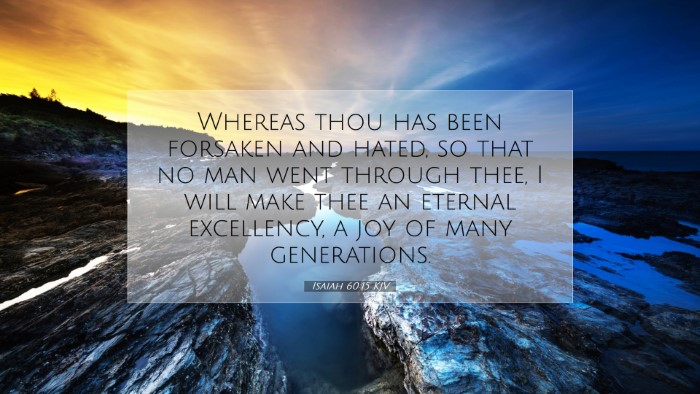Commentary on Isaiah 60:15
Isaiah 60:15 states:
"Whereas thou hast been forsaken and hated, so that no man went through thee, I will make thee an eternal excellency, a joy of many generations."
Introduction
The verse is a part of a broader prophetic vision delivered by Isaiah, a testament to the restoration of Zion after periods of desolation and neglect. This passage encapsulates the themes of hope, restoration, and divine favor, identifying the transformation from abandonment to exaltation.
Contextual Background
Isaiah prophesies during a time of great turmoil for the Israelites, a period marked by their exile and suffering. The preceding chapters detail the various tribulations faced by Jerusalem, and here, Isaiah pivots to announce the future glory and prominence of Zion.
Exegesis of Key Phrases
- "Forsaken and hated": This phrase indicates the severe abandonment faced by Jerusalem. The language underscores the desolation that not only affected the physical city but also its spiritual and communal identity. Matthew Henry elaborates that this reflects the historical context in which Jerusalem was often neglected by its inhabitants and surrounding nations.
- "No man went through thee": This expression conveys extreme neglect and desolation. Albert Barnes interprets this as prophetic of a time when the people of Jerusalem felt utterly isolated, lacking the presence of visitors or solace from neighboring nations.
- "Eternal excellency": Adam Clarke notes that the promise of becoming an "eternal excellency" signifies not just a physical restoration but a spiritual revival that would attract generations to come. It emphasizes that what was once a site of reproach will become a beacon of hope.
Theological Implications
This verse carries significant theological weight, particularly concerning God’s unchanging nature in the face of human circumstances. The transition from forsakenness to exaltation reflects God’s sovereignty and His promise of redemption. Key theological implications include:
- Hope amid Despair: The verse illustrates that even in the depths of despair, there lies the potential for renewal and divine intervention. For pastors, this serves as a potent reminder of the restorative power of God that embodies both grace and mercy.
- The Character of God: Isaiah affirms God's character as one who redeems and restores. Barnes asserts that this reflects the covenant faithfulness of God, contrasting the temporary sufferings with eternal glory.
- Communal Restoration: The notion of becoming a joy for many generations speaks to the idea of communal identity as affected by divine actions. Clarke emphasizes the implications for community building among the faithful, demonstrating how restoration invites participation across generations.
Application for Contemporary Readers
For pastors, students, theologians, and readers in general, Isaiah 60:15 offers both encouragement and a challenge. In a world fraught with challenges, this verse invites reflection on personal and communal identity in Christ.
- Personal Reflection: The promise of transformation can serve as a powerful reminder for individuals who feel forsaken or without direction. Embracing faith amidst adversity allows one to experience God’s ongoing work of renewal.
- Community Engagement: The collective aspect of joy for many generations can inspire churches to reach out, embodying welcoming and restorative practices. How can communities reflect this prophetic hope in contemporary ministry?
- Mission-Oriented Mindset: The broader application extends to understanding one's role in God’s redemptive plan. Just as Jerusalem is called to be a light, so too are modern believers called to extend hope to a world in need.
Conclusion
Isaiah 60:15 is a profound declaration of God’s ability to turn forsakenness into glory. The insights derived from public domain commentaries reveal a multifaceted understanding of the text, merging historical context with vibrant theological applications. In a world often marked by desolation, this verse resonates with enduring hope and divine promise, inviting all to partake in the narrative of restoration and excellence.


